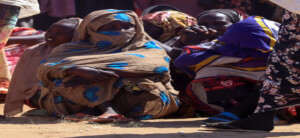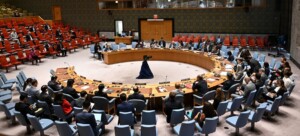Sudan’s diplomats, officials accused of trading forex on black market
Sudan’s former Undersecretary of Trade, Mohamed Nur Hamid, has accused ambassadors and officials of selling foreign currency on the black market.
 People queue for cash at banks in Khartoum in August (RD)
People queue for cash at banks in Khartoum in August (RD)
Sudan's former Undersecretary of Trade, Mohamed Nur Hamid, has accused ambassadors and officials of selling foreign currency on the black market.
Speaking at a forum in Khartoum on Tuesday, he said “ ambassadors and officials change their foreign currency on the black market while they want us to change it in the banks”.
The Union of Banks held the Bank of Sudan (CBoS) responsible for the liquidity shortage and expected further drying-up of liquidity following its recent decisions.
The union explained that 90 per cent of the cash mass has moved out of banks.
Traders and businessmen complained of a worsening liquidity crisis in banks and considered the CBoS announcement to address the liquidity crisis within two weeks as “mere painkilling rhetoric”.
Liquidity crisis
Leading economist Dr Sidgi Kaballo asserts that the ongoing liquidity crisis in Sudan stems from lack of confidence in the banking system and poor treasury cash-flow management.
Sudan’s Minister of International Cooperation, Idris Suleiman, has remarked that one of the causes of the liquidity crisis in the country is that 90 per cent of the cash mass is being circulated outside the banking system.











 and then
and then